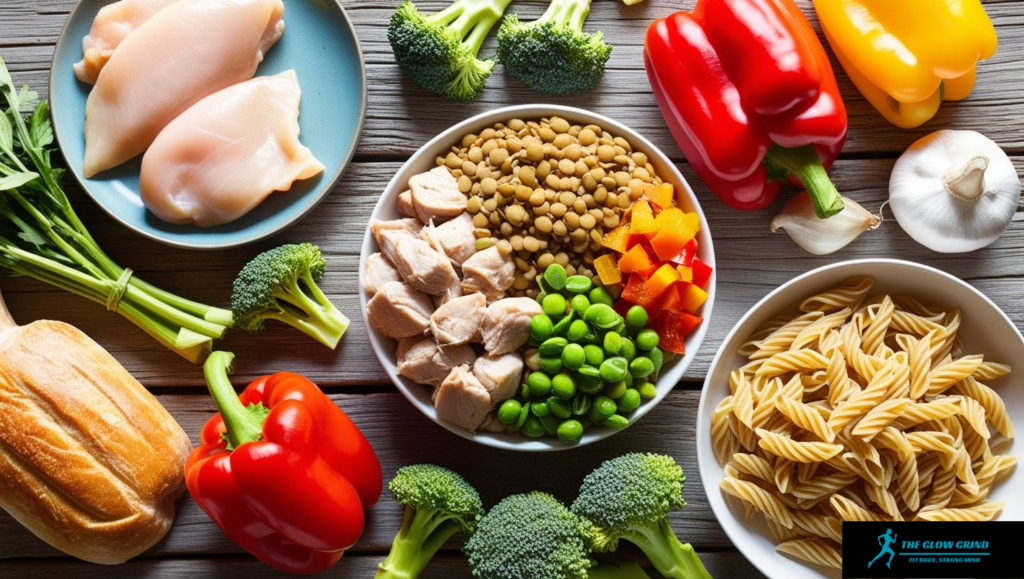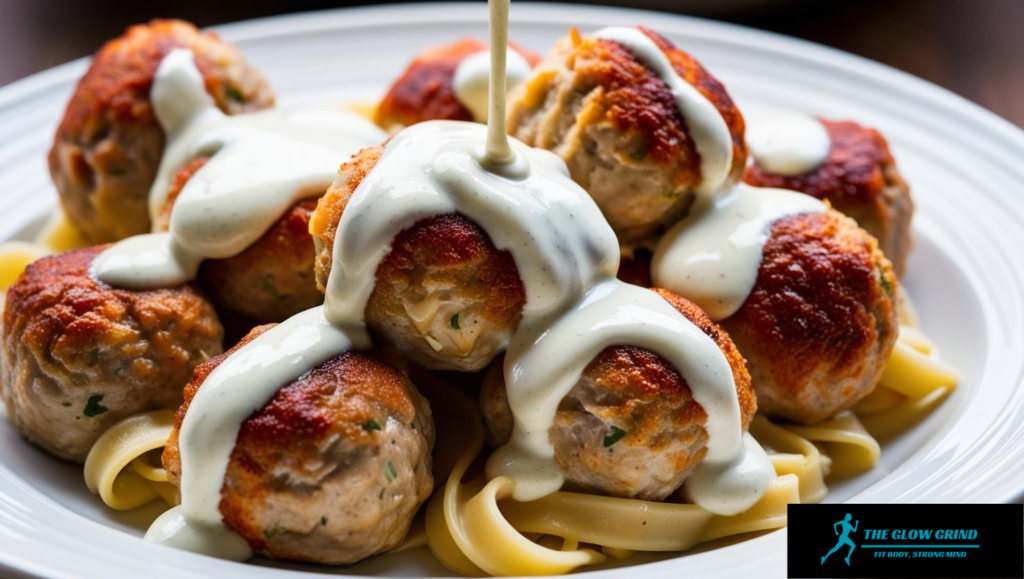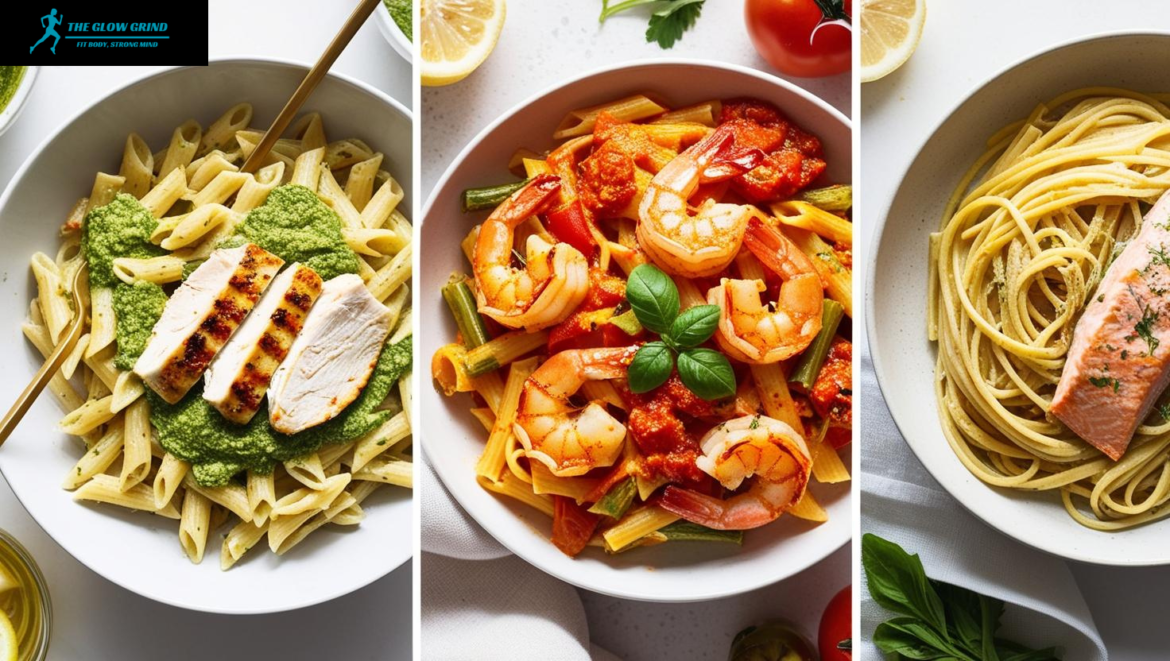High Protein Pasta Recipes: Delicious, Nutritious, and Easy to Prepare
Particularly about protein content, pasta aficionados often find it difficult to come by recipes that strike a mix between taste and nutrition. Still, high-protein pasta dishes present the ideal answer. These meals not only meet your need for a filling dinner but also help with weight control, muscle growth, and general wellness. High-protein pasta dishes may improve your cooking skills whether your taste is for a healthy take on classic spaghetti or you’re an athlete searching for a post-workout dinner.
This page explores all you need to know about high-protein pasta dishes, including their advantages, ingredients, cooking advice, and some must-try ideas.
Why Choose High-Protein Pasta?
Nutritional Benefits
Naturally high in protein and fiber, alternative flours, such as chickpea, lentil, or black bean flour, are used in high-protein pasta. These kinds offer more vital nutrients than conventional wheat-based pasta, therefore encouraging satiety and consistent energy levels.
Muscle Building and Recovery
Muscle repair and development depend on it; hence, athletes and fitness buffs should choose high-protein pasta. These dishes become nutritious powerhouses when combined with additional protein-rich foods such as lean meats, eggs, or plant-based substitutes.
Weight Management
By making one feel full, diets heavy in protein can help manage appetite and cut calorie consumption. Recipes for high-protein pasta can be a great approach to control weight without compromising flavor.
Key Ingredients for High-Protein Pasta Recipes

High-Protein Pasta Recipes
• Chickpea pasta: nutty and protein-rich.
• Lentil pasta: Earthy and high in protein and fiber.
• Black bean pasta: Unique taste and high protein count.
• Whole wheat pasta: Traditional choice with more protein and fiber.
• Lean meats: turkey, chicken, or lean beef.
• Seafood: shrimp, tuna, salmon.
• Plant-based alternatives: tofu, seitan, tempeh.
• Legumes: lentils, chickpeas, edamame.
• Dairy: Shredded cheese, ricotta, cottage cheese.
• Vegetables: bell peppers, broccoli, spinach, and zucchini.
Tips for Preparing High-Protein Pasta Recipes
Choose pasta with a nutritious edge created from high-protein components.
For a well-rounded meal, toss your spaghetti with a variety of protein, good fats, and veggies high in fiber.
Eat with smart seasons. Without resorting to calorie-dense sauces, improve taste using herbs, spices, and citrus.
Cook al dente to preserve pasta’s texture and nutritional worth by not overcooking it.
Combine with sauces heavy in proteins: Great selections are tahini dressings, nut-based pestos, and Greek yogurt-based sauces.
Top High-Protein Pasta Recipes
Ingredients in grilled chicken and broccoli chickpea pasta:
8-ounce chickpea spaghetti
Two grilled chicken breasts cut
One cup cooked broccoli
Two tablespoons of olive oil
Two minced cloves of garlic
One tsp red pepper flakes.
Taste and salt & pepper
Instructions
Follow package directions for cooking the chickpea pasta.
In a skillet, sauté garlic, red pepper flakes, and olive oil until aromatic.
In the garlic oil mixture, toss the spaghetti, chicken, and broccoli.
Season with salt and pepper; present hot.
35g of protein per serving.
Two ingredients for spicy shrimp and lentil pasta are:
8-ounce lentil pasta
Twelve big shrimp, peeled and deveined
One cup of cherry tomatoes, halved
One tablespoon of olive oil
One tsp. paprika
One teaspoon chili flakes
Taste salinity and pepper.
For garnish, fresh parsley
Instructions
Follow package instructions for cooking the lentil pasta.
In a pan, heat olive oil; add paprika as needed. and chili flakes. Cook until prawns become opaque.
Toss gently well with cherry tomatoes and cooked pasta.
Top before serving fresh parsley.
30g of protein per serving
Ingredients in vegan tofu and spinach whole wheat pasta:
eight ounces of whole wheat pasta
One cup firm tofu, broken up
Fresh spinach in one cup
Two tablespoons of dietary yeast
Olive oil, 1 tablespoon
one minced clove of garlic
One tsp smoked paprika.
Taste salt and pepper according to your need.
directions
As directed, prepare the whole wheat pasta.
In olive oil, sauté tofu and garlic; season with smoky paprika, salt, and pepper.
Add spinach; cook until wilted.
Stir the spaghetti with the tofu-spinach mixture, then sprinkle with nutritional yeast.
25g of protein comes from one serving.
Tuna Pesto Black Bean Pasta
Ingredients
Pasta 8 ounces black beans
One tuna in water, drained
Two tablespoons of pesto made from basil
One cup cherry tomatoes
Juice derived from one lemon
Taste: salt & pepper
Commands
Following package directions, cook the black bean pasta.
Combine cooked pasta with tuna, pesto, cherry tomatoes, and lemon juice.
Season to taste and serve.
About forty grams of protein are included in one dish.
High-protein Greek yogurt Alfredo made with turkey meatballs uses

8 ounces of any kind of high-protein pasta
One cup Greek yogurt.
½ cup finely grated Parmesan cheese
One pound ground turkey; one egg
½ cup breadcrumbs.
two minced garlic cloves
Salt, pepper, and Italian seasoning to taste
Instructions
Prepare the spaghetti and save it.
Combine turkey, egg, breadcrumbs, garlicky salt, and herbs. Form into meatballs then bake for twenty minutes at 375°F (190°C).
Under low heat, combine Greek yogurt and Parmesan cheese for the Alfredo sauce.
Turn the pasta in the sauce; top with turkey meatballs.
One serving delivers around 45g of protein.
FAQs About High-Protein Pasta Recipes
1. Which high-protein pasta should I choose?
Your palate of taste will choose the finest high-protein pasta. Though whole wheat pasta is a classic, lentils and black bean spaghetti are great options for a plant-based alternative to chickpeas.
2. Could I create high-protein pasta?
Indeed, you can make high-protein pasta at home by putting protein powder into the dough or by using lentils or chickpea flour.
3. Are high-protein pasta recipes suitable for weight loss?
High-protein pasta dishes are good for weight reduction as they make one feel full, therefore lowering the possibility of overindulgence.
4. Are these recipes suitable for vegetarians or vegans?
Many high-protein pasta dishes fit vegetarians or vegans by using plant-based foods, including tofu, tempeh, or lentils, and cutting animal ingredients.
5. How can I increase the protein content of my pasta dish?
Toss lean meats, seafood, and plant-based proteins with dairy-based sauces to boost the protein count.
6. Can I store high-protein pasta recipes for meal prep?
Definitely! Great for meal planning are these dishes. Store them in refrigerated, airtight containers for three to four days; reheat as required.


3 comments
You can find a wide range of certified healthcare solutions for various needs.
This website guarantees quick and secure delivery to your location.
Each medication is supplied by licensed pharmaceutical companies to ensure effectiveness and reliability.
You can browse our online store and get your medicines in minutes.
If you have questions, Customer service are here to help at any time.
Stay healthy with our trusted online pharmacy!
https://www.storeboard.com/blogs/health/my-journey-with-zovirax-400-mg/6074712
Purchasing drugs from e-pharmacies is far simpler than visiting a local drugstore.
No need to stand in queues or think about store hours.
Internet drugstores give you the option to buy your medications without leaving your house.
Numerous platforms offer discounts in contrast to brick-and-mortar pharmacies.
https://forum.banknotes.cz/viewtopic.php?t=67290
Plus, it’s possible to browse alternative medications quickly.
Fast shipping makes it even more convenient.
Do you prefer buying medicine online?
Here, you can discover a wide selection of slot machines from top providers.
Players can enjoy retro-style games as well as modern video slots with high-quality visuals and exciting features.
If you’re just starting out or a seasoned gamer, there’s something for everyone.
slot casino
All slot machines are available 24/7 and compatible with PCs and mobile devices alike.
All games run in your browser, so you can start playing instantly.
Platform layout is user-friendly, making it simple to explore new games.
Join the fun, and enjoy the world of online slots!